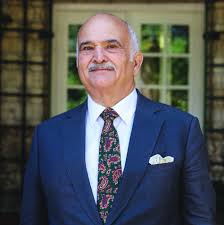Muhammad Ali Jinnah often said India was not a country, but a subcontinent of nationalities whose leadership should focus on ‘peace within and peace without.’
This is not new. In 1919 Sir Halford Mackinder observed:
“Who rules East Europe commands the Heartland; who rules the Heartland commands the World Island; who rules the World Island commands the World.”
The struggle for control of the energy ellipse from Eurasia to the Straits of Hormuz may emerge as the most crucial test of the East-West world power balance in the next decade. A time of reckoning is approaching in West Asia, inclusive of Turkey, Iran, Pakistan and the Arab countries of the hinterland to the Gulf Cooperation Council (GCC).
The regional hotspots of the Eastern Mediterranean: Cyprus and Turkey, Palestine and Israel, and Kashmir in South Asia, contain distinct communities, presenting a security dilemma.
The continuing conflicts in Syria, Libya, the Yemen, the powder keg that Iraq remains, looming chaos in Lebanon, alongside the US Peace Plan and Israeli responses, together with the abrupt ending of funding to UNRWA, tantamount to defining Palestinian refugees, if not the Palestinian entity itself out of existence, have added new elements to regional problem solving.
It should perhaps be no surprise – the clue was in the title – that the Deal of the Century bears all the hallmarks of a real estate transaction and none of the ingredients for successful conflict resolution: talking, listening, and compromising on a shared solution with majority support. All difficult to achieve when key partners are notable only by their absence, forced out by impossible demands.
But moving on, the regional……..






